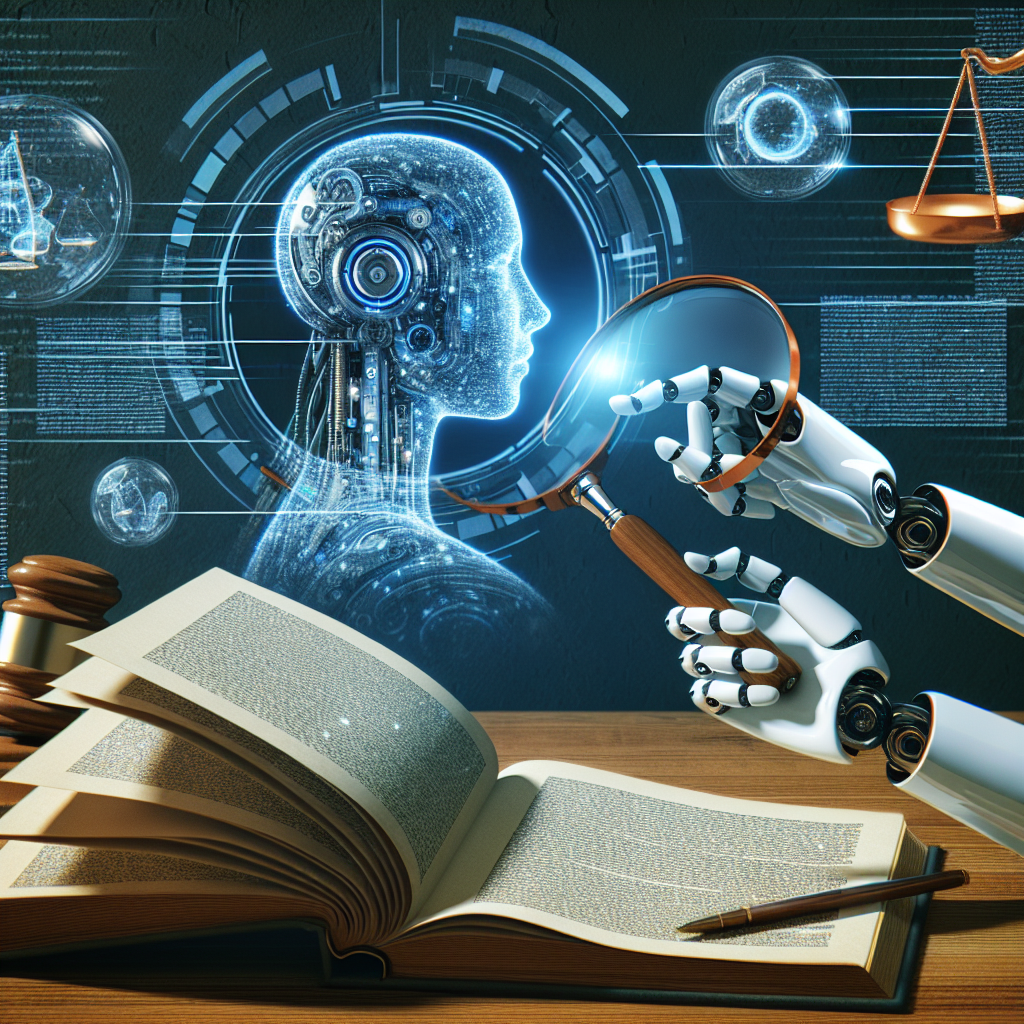The Impact of AI on Legal Research and Analysis
Artificial Intelligence (AI) has rapidly transformed various industries, and the legal field is no exception. AI technology has revolutionized legal research and analysis, providing lawyers and legal professionals with powerful tools to streamline their work processes, enhance efficiency, and improve outcomes for clients. In this article, we will explore the impact of AI on legal research and analysis, as well as the benefits and challenges associated with this technology.
AI in Legal Research
Legal research is a crucial aspect of the legal profession, as it involves the collection, analysis, and interpretation of laws, regulations, and case law to support legal arguments and decision-making. Traditionally, legal research was a time-consuming and labor-intensive process that required lawyers to manually search through vast amounts of legal documents to find relevant information. However, with the advent of AI technology, legal research has been transformed into a more efficient and effective process.
AI-powered legal research tools, such as Westlaw, LexisNexis, and ROSS Intelligence, utilize machine learning algorithms to analyze massive datasets of legal documents and extract relevant information quickly and accurately. These tools can provide lawyers with access to a wealth of legal information, including statutes, regulations, case law, and legal commentary, in a fraction of the time it would take to conduct manual research.
AI in Legal Analysis
In addition to legal research, AI technology is also being used to enhance legal analysis. AI-powered tools can assist lawyers in analyzing and interpreting legal documents, identifying patterns and trends, and predicting outcomes in legal cases. For example, predictive analytics tools can analyze past case outcomes and legal trends to help lawyers assess the likelihood of success in a particular case.
AI technology can also be used to automate routine legal tasks, such as contract review and due diligence. By utilizing natural language processing (NLP) and machine learning algorithms, AI-powered tools can review and analyze contracts, identify key clauses and potential risks, and generate reports in a fraction of the time it would take a human lawyer to do the same task.
Benefits of AI in Legal Research and Analysis
The adoption of AI technology in legal research and analysis offers several benefits for lawyers and legal professionals. Some of the key benefits include:
1. Time-saving: AI-powered legal research tools can significantly reduce the time it takes to conduct legal research and analysis, allowing lawyers to focus on more strategic and value-added tasks.
2. Cost-effective: By automating routine legal tasks, AI technology can help law firms reduce operational costs and improve profitability.
3. Accuracy: AI-powered tools can analyze massive datasets of legal documents with high accuracy, minimizing the risk of errors and ensuring that lawyers have access to reliable and up-to-date information.
4. Enhanced decision-making: AI technology can provide lawyers with valuable insights and predictions to support decision-making in legal cases, helping them to assess risks and opportunities more effectively.
Challenges of AI in Legal Research and Analysis
While AI technology offers numerous benefits for legal research and analysis, there are also some challenges and limitations that need to be addressed. Some of the key challenges include:
1. Data privacy and security: AI-powered legal research tools rely on vast amounts of data to operate effectively. Law firms need to ensure that client data is protected and secure when using AI technology.
2. Bias and transparency: AI algorithms can be biased if they are trained on biased datasets. It is essential for law firms to monitor and mitigate bias in AI-powered tools to ensure fair and accurate results.
3. Legal and ethical concerns: The use of AI technology in legal research and analysis raises legal and ethical questions, such as the responsibility for errors and decisions made by AI tools.
4. Training and adoption: AI technology is still relatively new in the legal field, and many legal professionals may require training and support to effectively use AI-powered tools.
FAQs
Q: Can AI replace human lawyers in legal research and analysis?
A: While AI technology can automate routine legal tasks and enhance efficiency, it cannot replace human lawyers entirely. Human judgment, creativity, and critical thinking are essential in legal research and analysis, and AI technology should be seen as a tool to augment and support human decision-making.
Q: How can law firms ensure the accuracy and reliability of AI-powered legal research tools?
A: Law firms should carefully evaluate AI-powered legal research tools before adopting them, ensuring that they are reliable, accurate, and compliant with legal and ethical standards. Regular monitoring and validation of AI algorithms can help to ensure the accuracy and reliability of AI-powered tools.
Q: What are some best practices for law firms looking to adopt AI technology in legal research and analysis?
A: Some best practices for law firms looking to adopt AI technology in legal research and analysis include:
– Conducting thorough research and due diligence on AI-powered tools before adopting them.
– Providing training and support for legal professionals to effectively use AI technology.
– Monitoring and evaluating the performance of AI-powered tools to ensure accuracy and reliability.
– Addressing legal and ethical concerns related to the use of AI technology in legal research and analysis.
In conclusion, AI technology has had a significant impact on legal research and analysis, providing lawyers and legal professionals with powerful tools to streamline their work processes, enhance efficiency, and improve outcomes for clients. By leveraging AI technology effectively, law firms can gain a competitive edge in the legal industry and deliver superior legal services to their clients. However, it is essential for law firms to address the challenges and limitations associated with AI technology and adopt best practices to ensure the accuracy, reliability, and ethical use of AI-powered tools.

